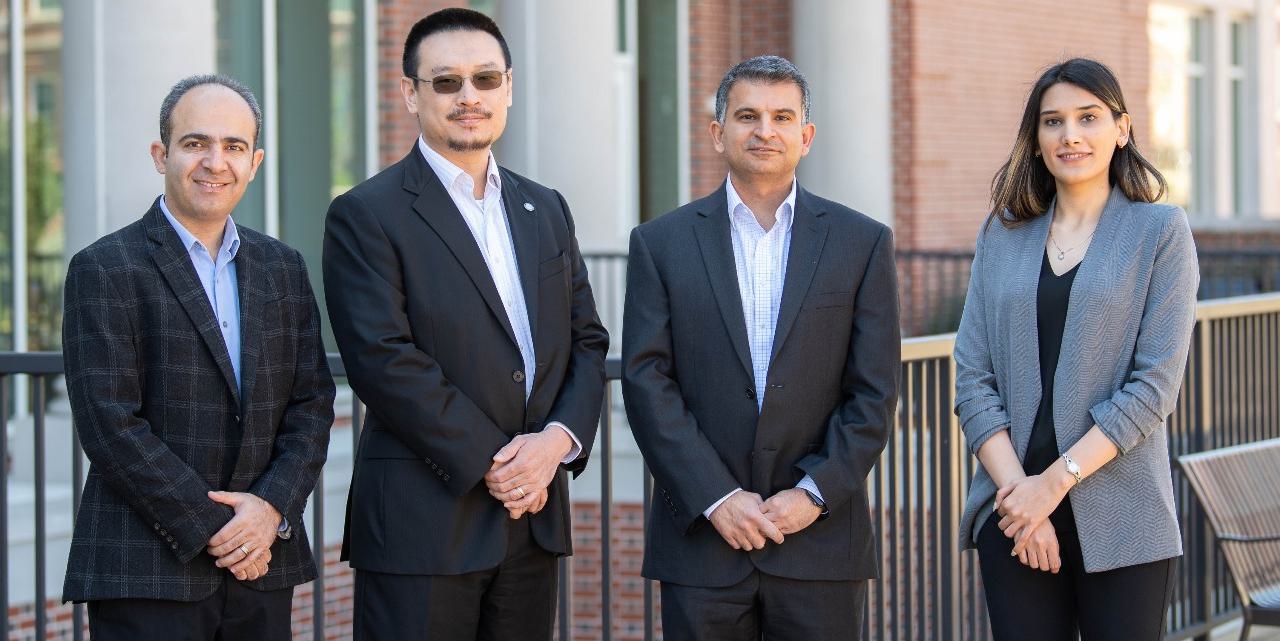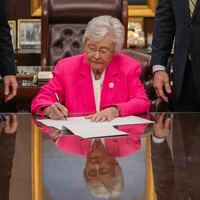The Auburn University National Center for Additive Manufacturing Excellence (NCAME) is teaming up with the Federal Aviation Administration (FAA) to improve commercial air travel by raising the reliability of 3-D printed metal aircraft components. NCAME researchers are also working with the U.S. Army to elevate combat readiness by advancing the adoption and implementation of additive technologies in Army operations.
NCAME is assisting both by closing gaps in additive manufacturing (AM) standards, which will ensure consistency in the durability and performance of 3-D printed products and parts. They received two grants from the FAA and the U.S. Army for these purposes that are valued at a total of $7.3 million.
Nima Shamsaei is the Philpott-WestPoint Stevens Distinguished Professor of mechanical engineering at Auburn.
“Material variation is what I call the ‘Achilles heel’ of additive manufacturing,” said Shamsaei. “It can make the qualification and certification of additively manufactured materials and parts challenging.”
The FAA said its $3 million partnership with the Auburn center is ultimately intended to improve safety by standardizing certification of existing and emerging structural applications of advanced materials. The FAA wants NCAME’s researchers to help it develop additive manufacturing specifications related to understanding how microscopic features in the 3D-printed metal affect overall fatigue and fracture properties in parts, along with variability issues with different production platforms.
The problem is that 3-D printed products made on different industrial-scale machines can have different properties. Parts that should be interchangeable can have properties that are far too variable, variabilities that are not apparent by eyeballing the parts. NCAME is tasked with discovering why this is the case and how to end this unwanted variation.
“By understanding the sources of variability, controlling them, or accounting for them, we can generate more reliable materials data and more reliable AM products,” said Shamsaei.
The NCAME has received a $4.3 million grant from the U.S. Army to launch a two-year project focused on materials, parts and process qualification. These are necessary elements for accelerating the adoption and implementation of AM in the Army’s operations.
Aaron LaLonde is a technical specialist for the U.S. Army DEVCOM Ground Vehicle Systems Center. Lalonde helped facilitate the Army grant, believing that the project will be crucial for further integrating AM into the Army’s modernization and sustainment efforts.
“NCAME,” LaLonde said, “has become one of the main key players in additive research along these lines.”
Economic developer Dr. Nicole Jones told 1819 News, “Additive manufacturing, also known as 3-D printing, refers to the process of building parts through the combination of material, layer-by-layer, from a CAD file. With Alabama’s dedication to the aerospace and defense industry as well as research and development (R&D), a natural partnership exists between Auburn University, the Federal Aviation Administration (FAA), and the Army. For the FAA, the goal is to increase the reliability of 3-D printed metal aircraft parts to improve commercial air travel. On the defense side, the Army hopes to use the grant as a way to examine how to implement 3-D printing technology and ultimately improve Army operations.”
Greg Canfield is the Secretary of the Alabama Department of Commerce.
“Alabama has been proactive in supporting advanced manufacturing in the state, and NCAME is an excellent example of the results of those efforts,” said Canfield. “The expanding expertise of this center is critical in our overall efforts to grow the cutting-edge sector of additive manufacturing.”
To connect with the author of this story, or to comment, email brandon.moseley@1819News.com.










